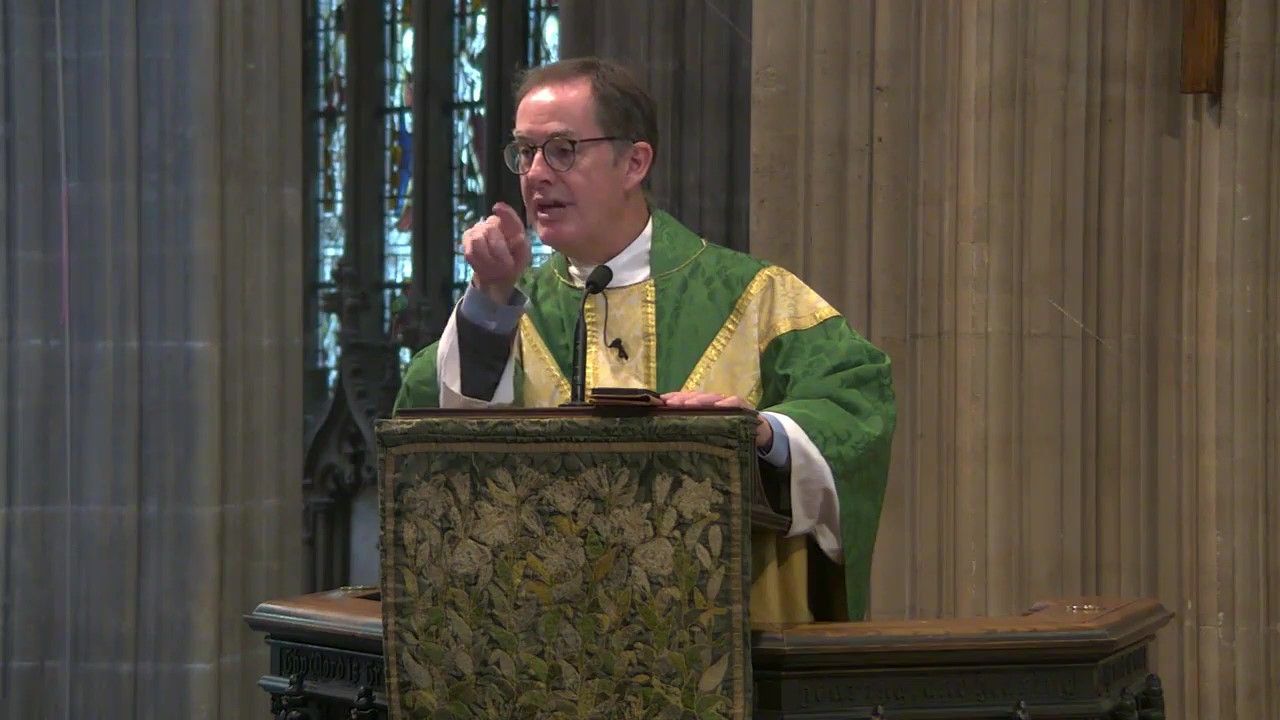We want you to do for us whatever we ask
It's not a great start to a conversation: redolent with passive aggression, prior collusion and unreal expectation. Not really a conversation starter at all, more a thinly veiled threat that, unless I get my way, toys will soon be spinning their way out of the cot! Not a way of opening up a discussion that many would choose when talking with friends or family.
So it is startling to read in Sunday's passage from Mark's gospel that this is precisely how James and John, the sons of Zebedee, start their conversation with Jesus: "Teacher, we want you to do for us whatever we ask."
I think today we might say that this evidences a real lack of self-awareness: asking the one you name as your teacher to do as they are told. I also suspect that, today. certain personality types would respond by saying: "Not likely", or "On yer bike, sunshine"!
But not Jesus. From my perspective, there is at the heart of Jesus, not just a focus on 'the other', not just compassion for the outcast and downhearted, but genuine curiosity: how many times does he answer a question with a question?
A lot of the training we get (and do) is focussed around asking good questions, about being curious and about wondering out loud. We are often sold this as new wisdom: like we are encouraged to embrace the 'new' wisdom of meditation! But it's not new and I doubt that Jesus invented it either.
Wonder and curiosity have been around for eons and Jesus makes very good use of them: as he does in this passage. To that thinly veiled threat - "Teacher, we want you to do for us whatever we ask." - Jesus wonders out aloud: "What do you want me to do for you?" The wisdom of this question is that it reveals not just the questionable nature of the request but also the underhand manner in which it is posed.
James and John, the sons of Zebedee, were nicknamed by Jesus earlier in Mark's gospel as 'Boanerges' - sons of thunder. I can't help noticing that this brings Macbeth's speech to my mind: "It is a tale told by an idiot, full of sound and fury, signifying nothing."
Having gently, even lovingly, undermined the presumption of Boanerges, Jesus then does that which they had named in him: he teaches. And what he teaches them, and us, is still as counter-cultural now as it was then; it is still as breath-taking in its expectations of how to behave within society; it is still as easy to understand as ever it was and just as hard to live out. "Those who wish to be great must be a servant; and those who wish to be first must be slave of all".
And, in our current context, that raises all sorts of other questions!






